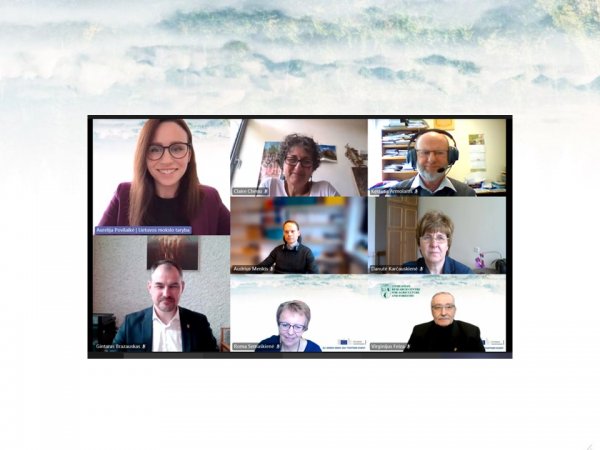
On May 27, the international conference of the European Green Week “Towards zero pollution – challenges and prospects for agriculture and forestry”, held at the Lithuanian Research Centre for Agriculture and Forestry, attracted great interest. More than 160 participants from various Lithuanian institutions, the neighbouring and other EU countries and from all over the world attended the event. Moderator – Aurelija Povilaikė. Programme
The remote event analysed the initiatives of the European Green Deal in the areas of climate change, strategy of chemical substances, energy, industry, mobility, agriculture, fisheries, health, and biodiversity.
Importance of conference topics
The conference was opened and welcomed by Dr. Gintaras Brazauskas, Director of LAMMC. He empathised that Europe, its scientists and the society at large have to put joint effort to make Europe climate neutral by the year 2030 and to save our planet for future generations.
Prof. Dr. habil. Zenonas Dabkevičius, Vice-President of the Lithuanian Academy of Sciences, pointed out that environmental pollution from all industries should be reduced. Scientists should focus on the development of low-input crop varieties, use smart technologies, and try to find new solutions to be more environmentally friendly.
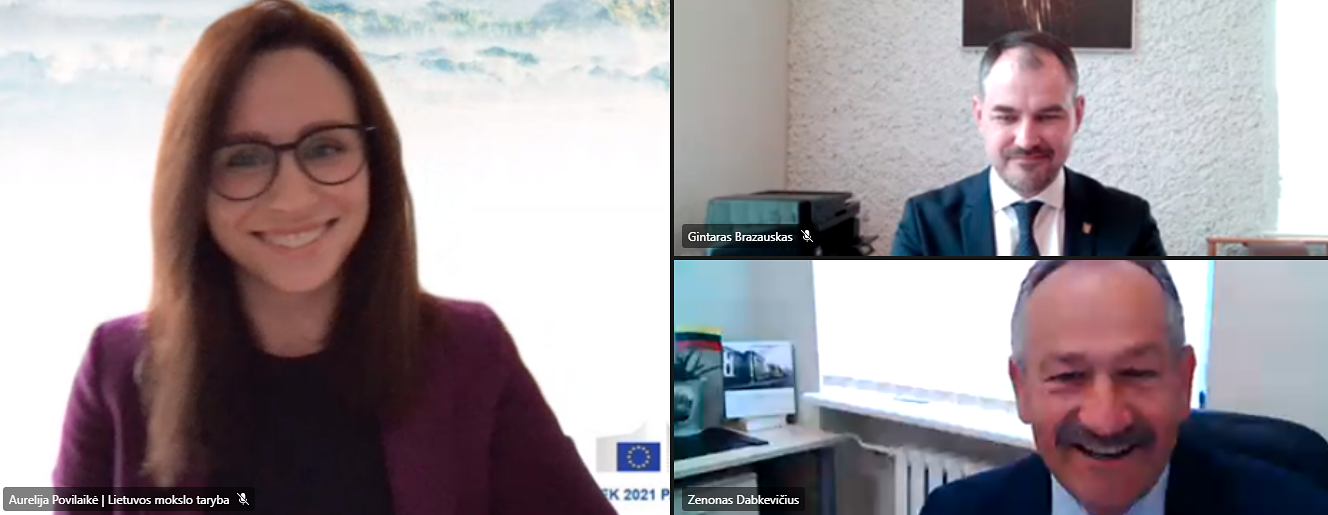
Gintautas Jakštas, Vice-Minister of the Ministry of Education, Science and Sport, said that more sustainable EU economy has to ensure better water quality and greater biodiversity.
Vaidotas Ašmonas, Head of the Sustainable Agricultural Production Policy Group at the Lithuanian Ministry of Agriculture, stressed that the topics addressed at the conference were particularly relevant, and that in the context of climate change, a strong focus should be placed on improving the condition of soils and reducing soil erosion.
Vice-Minister of the Ministry of the Environment Danas Augutis remarked that the new European strategic documents can be seen as threats to agriculture, but it is important to take advantage of the opportunities they offer.

The conference participants worked in three sessions and delivered five presentations in each.
Healthy soils – the background for planet survival
Youtube link: https://youtu.be/JkJi_ADD3rI

Soil is the key to the EU Green Deal
Dr. Virginijus Feiza talked about the different soil types in Lithuania, the impact of soil management systems on soil quality and crop productivity; Dr. Kęstutis Armolaitis’ presentation focused on sustainable use of soil resources under changing climatic conditions.
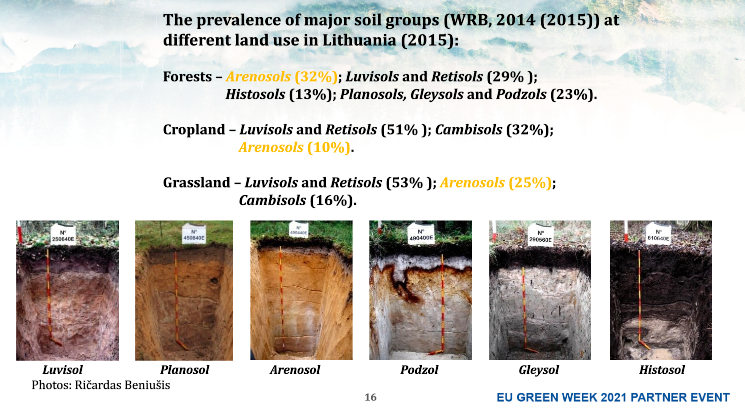
Dr. Danutė Karčauskienė analysed the problem of phytoremediation of heavy metals and other pollutants from contaminated soils; Dr. Virmantas Povilaitis discussed the possibilities of food and fodder production on marginal soils.
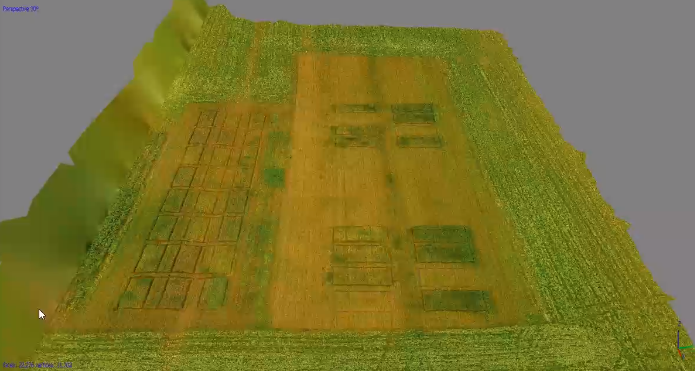
UAV remote sensing of crops (photo by LAMMC)
The importance of plant biodiversity in agriculture and forestry
Youtube link: https://www.youtube.com/watch?v=YpGasv2Sy5s
In the second session, participants made presentations on the importance of crop biodiversity in agriculture and forestry. Dr. Gintaras Brazauskas highlighted the contribution of the new breeding methods to the development of a sustainable food system in the Nordic-Baltic region.

Proximal sesning phenotyping
Dr. Žydrė Kadžiulienė analysed the importance of legumes in the agroecosystem. Dr. Efi Alexopoulou from the Centre for Renewable Energy Sources and Saving (CRES, Greece) discussed the impact of non-food crops on biodiversity in agriculture, presented the results of two research projects, one of which is being implemented in conjunction with LAMMC – “A thematic network to design the penetration path of non-food agricultural crops into European agriculture” (PANACEA).
Dr. Audrius Menkis from the Swedish University of Agricultural Sciences (SLU) shared insights on the prospects for forests – the challenges posed by climate change and diseases, and the means of maintaining the functioning of the forest ecosystem.
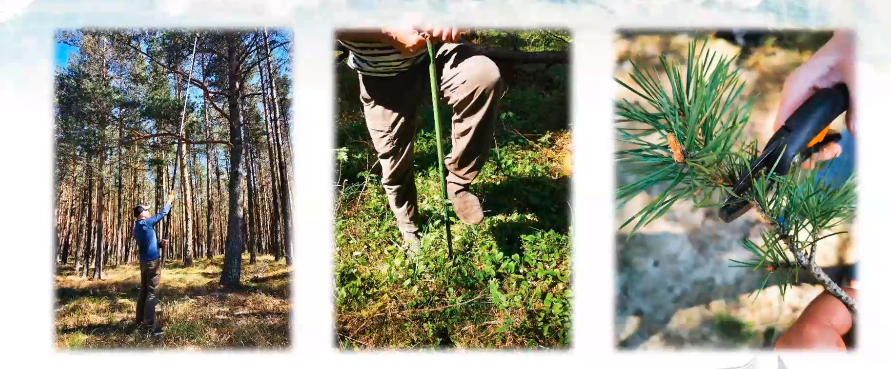
Sampling of plant tissues and soil for DNA work
Dr. Vaida Sirgedaitė-Šėžienė from the LAMMC Institute of Forestry, discussed the significance of biotechnological research and the potential of use of various physical, chemical and biological factors to increase plant productivity.
Reduction of synthetic pesticides and fertilizers – judgment or opportunity for agricultural farming?
Youtube link: https://www.youtube.com/watch?v=zep1farYgQI
The third session focused on the problems of reducing the use of synthetic pesticides and mineral fertilisers. Dr. Berit Nordskog from the Norwegian Institute of Bioeconomy Research (NIBIO) analysed the possibilities of use of the decision-support system ranging from the local use to the European platform, project which is implemented with LAMMC researchers – “Stepping-up IPM decision support for crop protection” (IPM Decisions).
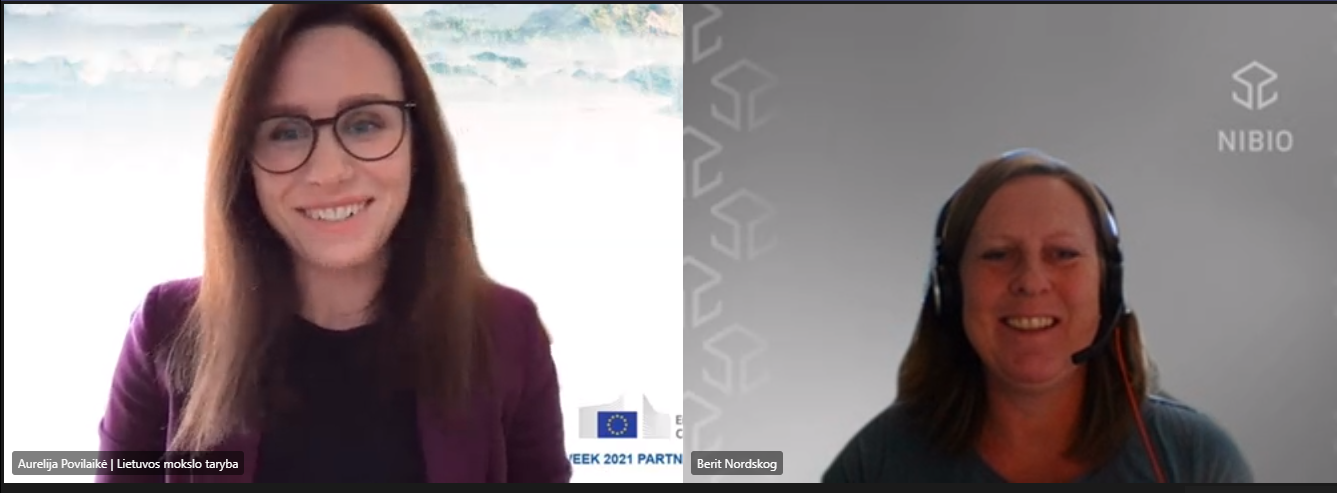
Dr. Roma Semaškienė discussed the role of the integrated pest management system in the Baltic region; Dr. Antanas Ronis’ presentation dealt with the issues of prevention and reduction of soil-borne diseases; Dr. Romas Mažeika talked about the role of composts and digestates as potencial future fertilizers.
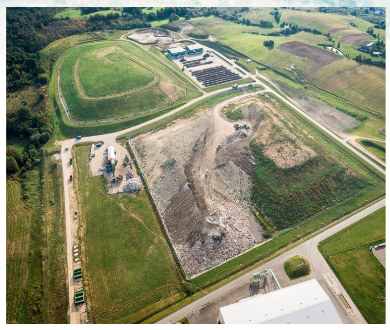
Lithuanian regional waste management centers
Dr. Skaidrė Supronienė’s presentation stressed the impact of soil micro-organisms on the soil quality, crop productivity and environment.
The recording of the event will be made available shortly. Follow LAMMC news.
We invite to visit the LAMMC stand at a Virtual Exhibition of EU Green Week, June 1–4: https://www.eugreenweek.eu/virtual-exhibition